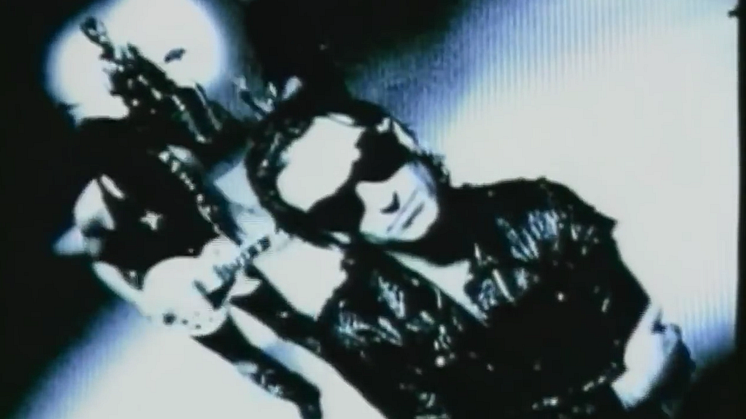
News -
After 25 years, a fly in U2’s anointment
Before you read any further, watch these two videos and comment below whether you think U2 has a case to answer over idea theft:
Ultimately, a court will need to decide how close “The Fly”, including its guitar solo, sound distortion and industrial-style percussion, is to “Nae Slappin”.
Ireland’s U2 is rightly regarded as one of the greatest rock bands of all time, a greatness based on reinventing its trademark sound at crucial times over its career. The most radical and successful reinvention occurred with the band’s seventh album, Achtung Baby in 1991, which has since sold more than 17 million copies worldwide and remains U2’s second-most lucrative recording.
But now a British musician is arguing that U2’s embrace of alternative, industrial and techno influences at the beginning of the 1990s included an act that crossed the line from inspiration to intellectual property theft.
In a lawsuit filed in a New York district court, Paul Rose accuses the band of stealing “signature elements” of his song “Nae Slappin” for the hit tune “The Fly” (the first single off Achtung Baby). The suit seeks US$5 million in damages from the band members and Island Records.
The substance of the claim is that Rose sent a demo tape of “Nae Slappin” to Island Records in 1989, the same year the label signed U2, and that the band members heard the track when visiting Island’s New York offices as label executives often played it.
A key part of the argument is the well-documented difficulties and internal tensions the band experienced throughout the process of moving away from U2’s early signature sound and its drift into the nostalgic Americana, which reached its denouement on 1988’s Rattle and Hum.
“Although perhaps the most popular rock band in the world in the 1980s, by that decade’s end the band felt in need of reinvigoration,” Rose’s lawsuit says. Pertinent to proving the argument may be evidence of the band’s frustrations while rehearsing new material in Berlin in 1990, including from demo tapes that were themselves stolen and bootlegged.
From the point of view of all Creators, though, the most notable aspect of the lawsuit may be the reason cited for the delay of more than 25 years in making the claim of idea theft.
Rose’s lawyer is reported by The New York Post as saying the reason his client has only now come forward is because he was just starting out in his musical career at the time of the alleged theft and he didn’t want it to ruin his career, and also he only recently found a former employee of Island Records able to corroborate his story that “Nae Slappin” was often played at Island Records at the time U2 was searching for new sounds.
Any Creator in the business of pitching to companies with the ability to make or break a potentially profitable idea, and indeed a future of possible reward from further ideas, will have sympathy for the conundrum of having to weigh the financial and emotional cost of asserting a moral claim, often with no guarantee of a satisfying outcome, versus maintaining amicable relationships with powerful players in an industry.
“Every artist is a cannibal, every poet is a thief,” the lyrics of the U2 song declare. We’ll have to wait to find out if the court agrees.
Now it's over to you:
- Comment on this story below
- Share this story using the social media channels above
- Register for PitchMark
- Share with us your own story of idea theft
- Follow PitchMark by clicking the red "Follow" button above
